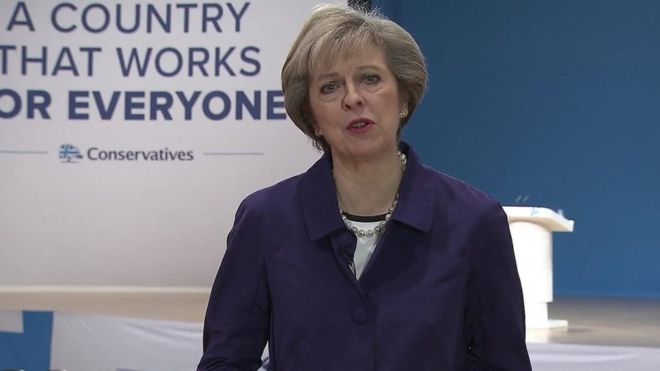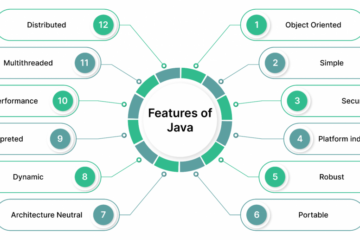
Leaving the EU will not be “plain sailing” but the UK must grasp the opportunities, Theresa May has said.
The prime minister told the BBC that firms understood there would be “bumps in the road” but she was committed to getting the best Brexit deal for them.
The UK must not be “a supplicant” in the upcoming talks but be “ambitious” about what it could achieve.
She also insisted there was “no single measure” capable of reducing immigration to “sustainable” levels.
She said she was still committed to the government’s goal of reducing net migration to less than 100,000 but declined to say whether this was achievable by 2020.
- Rolling text and video updates on Conservative conference
- Selfie requests a surprise for new PM
- UK troops to be ‘protected from claims’
- Brokenshire to address Tory conference
- £4bn EU funds ‘mismanagement’ claim
- FTSE rises above 7,000 as pound falls
On Sunday, Mrs May said she would notify the EU of the UK’s intention to leave between January and March 2017, beginning the process of formal negotiations over the terms of exit. She also suggested that curbing immigration by opting out of freedom of movement regulations would take precedence over remaining a full member of the EU’s single market.
The BBC’s political editor Laura Kuenssberg said the prime minister was determined not to give much away about her EU negotiating strategy and objectives, but the reality was that many of her most senior ministers did not agree on what they were aiming for.
On Tuesday, sterling fell to a 31-year low against the dollar, continuing its slide since Mrs May set out the details of the timetable for Brexit negotiations on Sunday. However, at the same time, the FTSE 100 share index has risen above 7,000 for the first time since May 2015.
Mrs May told BBC Radio 4’s Today that the negotiations would be complicated and that while “life is going to be different in the future… I want to ensure it is a success”.
She said businesses she had spoken to, including foreign companies with substantial workforces in the UK, realised the process would not be straightforward.
“Of course they know it is not going to be plain sailing and there will be bumps in the road and they want certainty as soon as possible about the future holds but the attitude I am hearing is… ‘let’s make sure we come together and grasp the opportunities that are available’.”
Asked what kind of concessions the UK would have to make to retain full access to the single market, she said the UK should not be approaching the negotiations thinking what aspects of the EU membership it should keep, but should be thinking about what kind of relationship it wanted with the EU and the wider world as a “sovereign, independent” country.
“I am going to be ambitious as we go into discussions,” she said. “I want British businesses to be able to trade with the EU and operate within the EU and EU businesses to be able to operate within the UK.
“It is not about the UK, in some sense, being a supplicant to the EU but the reciprocity here – a good trade deal is going to be a benefit to us and the EU.”
Opposition parties respond to May
Jon Ashworth MP, Labour’s shadow minister without portfolio, said: “It’s increasingly clear that Theresa May is steering us down the road of hard Brexit despite having no idea where it leads.
“The ‘bumps in the road’ she talks about are real threats to our economy, yet she’s recklessly ploughing on, putting jobs and prosperity at risk.”
Liberal Democrat leader Tim Farron said: “Theresa May this morning spoke about ‘bumps in the road’. These ‘bumps’ as she blithely calls them, are people’s jobs and livelihoods. She seems as out of touch as her ministers.”
Ahead of her speech later on Tuesday, there has been speculation that Home Secretary Amber Rudd will announce further controls on immigration from outside the EU.
Mrs May – who will address the conference herself on Wednesday – said the authorities needed to be constantly aware of loopholes in the system but insisted there was no magic bullet to substantially reduce net migration – currently at more than 300,000 a year.
“Amber Rudd is already looking at what we need to do across the board to do that. There is not a single measure that suddenly brings all the numbers down.”
On the third day of conference, Defence Secretary Michael Fallon, Health Secretary Jeremy Hunt and Education Secretary Justine Greening are among the other speakers.
[Source:-BBC]




